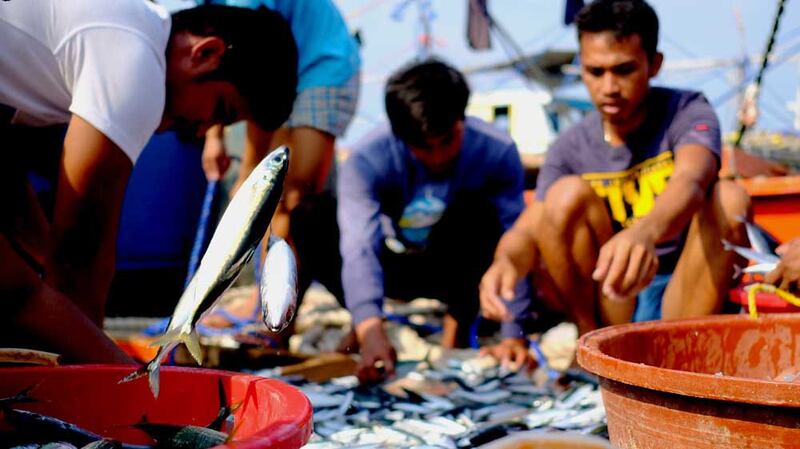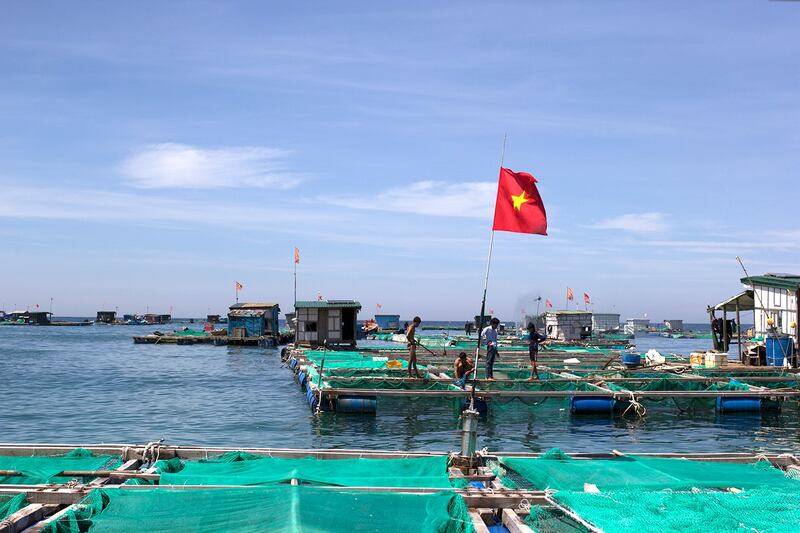On the fifth anniversary of the Permanent Court of Arbitration’s ruling, the lawyer who advised the Philippine government against China’s excessive claims in the South China Sea suggests there should be renewed international efforts and a “new legal case.” But countries in the region are treading carefully.
“It was a beautiful summer day in The Hague,” recalls Jonathan London, a Leiden University scholar who has been watching South China Sea issues for over a decade.
“But it was also surreal, because there was an important judgment to be handed down relating to a conflict on the other side of the world.”
After three years, an arbitration case brought by the Philippines against China under the United Nations Convention on the Law of the Sea (UNCLOS) was about to end with a ruling that could have a major effect on the increasingly heated dispute across one of the world’s most important trade routes. Known as PCA Case No. 2013-19, it marked the first time any nation had challenged China over its maritime sovereignty, an action pitting a Southeast Asian U.S. ally against a rising superpower.
Outside the palatial building of the Permanent Court of Arbitration in the stately Dutch city, small crowds started gathering in the morning. First a group of Filipinos waving placards and chanting, "China out of Philippine waters," then some journalists and TV crews. “This all changed after about an hour, when a large tour bus pulled up. Several dozen middle-aged and elderly mainland Chinese stepped out and began chanting loudly too,” explains London, who was at the site.
Across the Atlantic in Washington, D.C., Paul Reichler -- a partner at the law firm Foley Hoag and the lead counsel for the Philippines -- arrived in his office at 4:45 a.m. only to find his team had already gathered in anticipation. The arbitral ruling was due to arrive by email, half an hour before it was announced to the public.
And then came the exhilarating moments when the legal team read through the pages of the decision.
“It was extremely exciting to run through the details: What have they decided on that? And that? Oh my God, have we won that too?” Reichler laughs. “It was too early in the morning to pop the champagne though.”
Historic ruling
On that day, July 12, 2016, the arbitral tribunal ruled in favor of the Philippines on most of its submissions and rejected China’s claim of historic rights to vast areas in the South China Sea using the so-called “nine-dash line” that stretches deep into maritime Southeast Asia.
China, Vietnam, the Philippines, Taiwan, Malaysia and Brunei all have competing claims over the area thought to be rich in natural resources. The South China Sea is also a major shipping route that carries one third of global maritime trade.
Philippines vs China - The rulings:
* China had violated the Philippines' sovereign rights by operating in the latter’s exclusive economic zone and continental shelf.
* China’s land-reclamation activities in the South China Sea had caused “severe harm to the coral reef environment.”
* All of the high-tide features in the Spratly Islands are legally “rocks” that do not generate an exclusive economic zone or continental shelf. The Spratly Islands cannot generate maritime zones collectively as a unit.
* There was no legal basis for China to claim historic rights to resources within the sea areas falling within the ‘nine-dash line’.
“While I had anticipated the ruling, I was still struck by its gravity. An international court has categorically and comprehensively rejected as illegitimate the claims of a major power,” London said. “The principle underlying the case was simple: the historical record offers virtually zero support for Beijing's claims.”
“The victory exceeded our expectation,” agreed Marites Vitug, a leading Filipino journalist and author of “Rock Solid: How the Philippines Won Its Maritime Case Against China.”
“We only hoped to win on the single issue of the nine-dash line but we won on most of the issues. A group of activists took to the streets in Manila to celebrate with flowers and balloons. There was also a rally in front of the Chinese Embassy.”
“But our mood was somehow dampened by the reaction from the secretary of foreign affairs [Perfecto Yasay Jr]. He gave a very short statement, he didn’t even smile but looked really sad, like he was attending a funeral!” said Vitug.
Many think that President Rodrigo Duterte, who took office less than two weeks before the arbitration award, preferred a ‘soft landing’ approach, seeking to appease China with a quiet, restrained response instead of exuberant celebrations. The case had been submitted in 2013 under the administration of Duterte’s predecessor, and Duterte was seeking a less acrimonious relationship with Beijing.
Secretary Yasay was not the only one who was not cheerful after hearing the tribunal’s decision.
“The Chinese mainlanders [outside the arbitration court] were muted, quietly filed back onto their bus and disappeared,” London recalled.
China's reaction
China quickly rejected the ruling. Chinese Foreign Minister Wang Yi said on the day that the Chinese people “will not accept the result.”
From the beginning, Beijing announced that it would not accept nor participate in the arbitration. In a 2014 position paper, China argued that the dispute between China and the Philippines, as well as other countries in the region, was not subject to arbitration because it was ultimately a matter of sovereignty which was outside the tribunal’s jurisdiction.
Chinese legal experts insisted that the case initiated by the Philippines was “null and void.” Up to the present day, there’s a noted reluctance across Chinese academia to discuss the arbitration in any depth.
Last year, in remarks at the Munich Security Forum, President of the National Institute for South China Sea Studies Wu Shicun stated that, “China and the Philippines have reached consensus on shelving the decision of the South China Sea arbitration since the second half of 2016.”
Duterte, who is expected to leave office in 2022, is believed to have sought to deal with Beijing unilaterally in the hope of securing China’s support and investment.

Chinese expert Wu, however, recognized that there are people in the Philippines who “keep pressuring the Duterte government on handling the disputes with China in line with the ruling.” He warned that the “legal debate over the South China Sea will be intensified again.”
The 2016 ruling has not stopped China from stepping up deployments of its coastguard, fishing fleets and navy in the South China Sea, including from its military bases in the Spratly Islands.
In January this year, Beijing adopted a Coast Guard Law that provoked much concern and criticism from China’s neighbors.
Most recently in March, hundreds of Chinese fishing boats encroached on Whitsun Reef inside the Philippines' exclusive economic zone.
Effective legal tool
However, in the longer term, attorney Paul Reichler, from Foley Hoag, argues that the arbitration award provides an authoritative determination of the law, “particularly of the legal obligations and rights for China and the Philippines.”
“The legal regime of the South China Sea has been established,” he said.
“The Philippines, by deciding to approach China unilaterally rather than multilaterally, let the gas out of the tires. But it doesn’t change the fact that the vehicle is there, the engine is working, you only need to put on new tires for it to run again.”
“There are hopes that following the award there’d be a coalition of countries which share the same interest and commitment in upholding the rule of law in the South China Sea. It can still happen,” Reichler said.
He suggested that part of the multilateral approach “should include a new case brought by a group of states to reinforce the 2016 award and apply it in a broader context beyond that of just between China and the Philippines.”
Another main claimant in the South China Sea -- Vietnam -- does not rule out the possibility of submitting its dispute with China to international court or arbitration.
In 2014, Hanoi filed a statement supporting the Philippines in bringing China to the international tribunal, at the same time rejecting China’s claims and reiterating its own claims in the South China Sea.
“Vietnam and other countries should uphold the outcomes of the 2016 award in order to resolve problems in accordance to international law,” said Pham Quang Vinh, former Vietnamese ambassador to the United States.
“We have a case ready but how to proceed depends on the circumstances.”
Another former senior Vietnamese diplomat, who has been studying the issue, is skeptical.
“Unless there is a major shift in the region, caused by China’s violations, there won’t be any legal case. Hanoi is inclined to pursue a policy of non-aggression and is very keen to maintain the status quo [in the South China Sea].”
He also warns that it will be difficult to rally support within the region for a joint legal proceeding, not least because most countries don’t want to antagonize China.

Malaysia, another claimant in the South China Sea, issued a weak 200-word statement on the arbitration award despite the fact that the ruling against China’s nine-dash line effectively benefits Malaysia in its maritime arguments.
“The situation in South China Sea is very fluid and dynamic,” explained Jalila Binti Abdul Jalil from the Centre for Ocean Law and Policy at the Maritime Institute of Malaysia.
“The ruling has enriched jurisprudence on issues concerning South China Sea. But stability is a different gamut and jurisprudence is just one of the angles,” she said.
However, Malaysia did, at the end of 2019, make a new submission of an extended continental shelf claim to the United Nations -- a move that might have been encouraged by the 2016 tribunal findings.
Similarly, in 2020 its neighbor Indonesia submitted a note verbale to the U.N. secretary-general challenging China’s maritime claims.
“The quest for a rules-based order in the Western Pacific and globally has gained increased urgency with China's expansionist posture and aggressive conduct, especially in the Western Pacific, but in other world regions too,” London said.
“Whether Vietnam, or any other country, is prepared to pursue legal proceedings is unclear. What is clear, is that there would be strong international support for such a case.”
“For decades, the U.S. did a disservice to the world by voting against the international law of the sea as part of efforts to protect U.S. interests and dominance. Now it is in the United States' interest, and that of the world, to insist on agreement to and enforcement of a rules-based order governing the seas,” he said.
